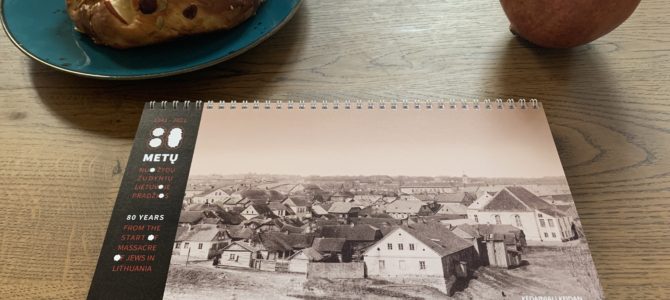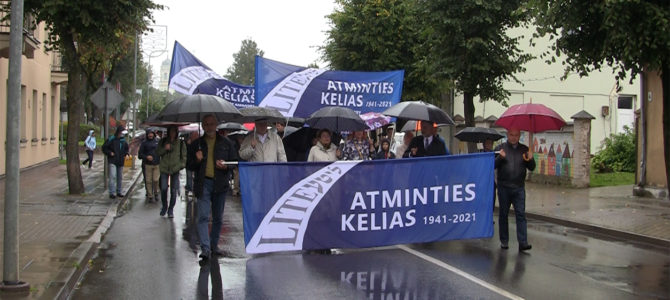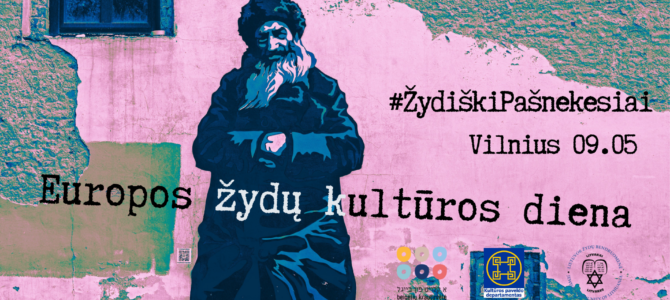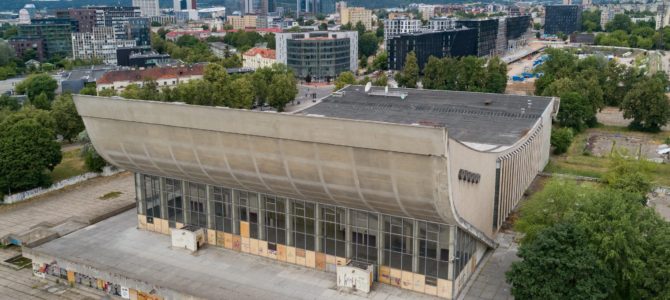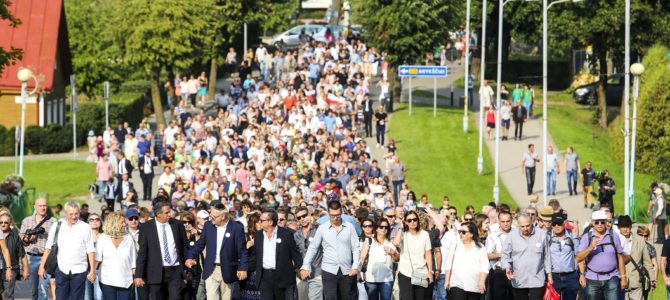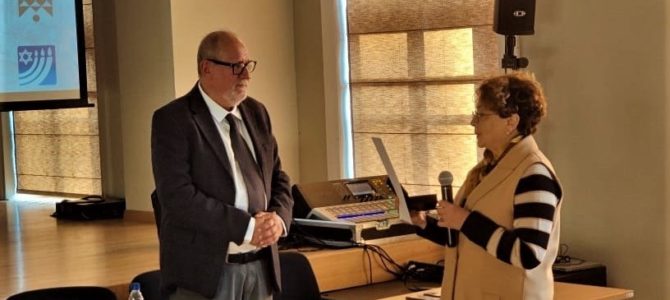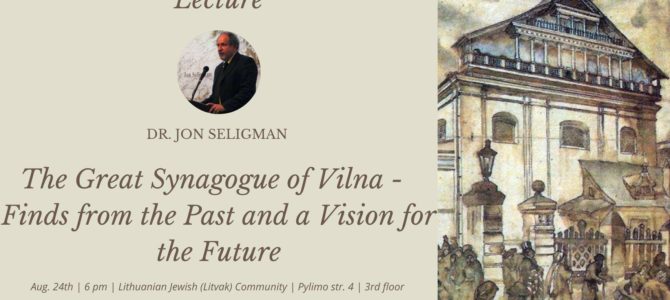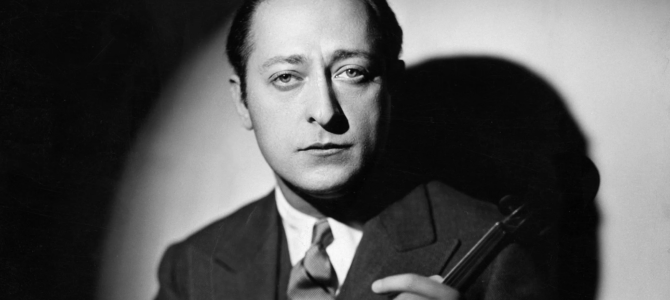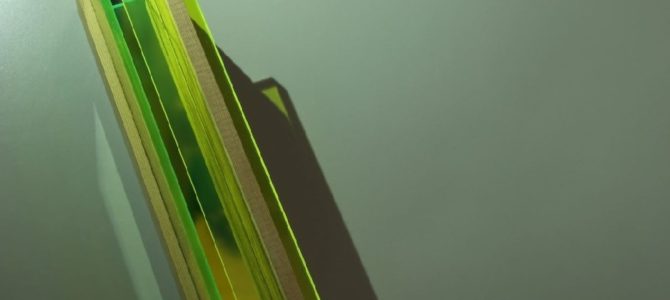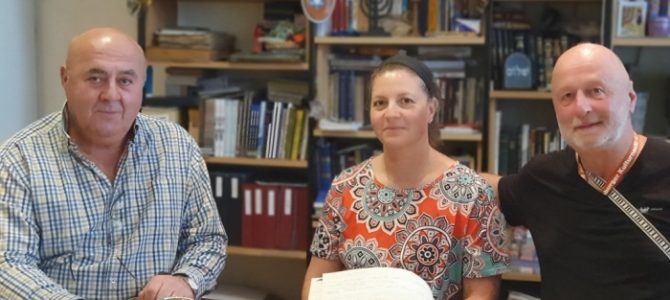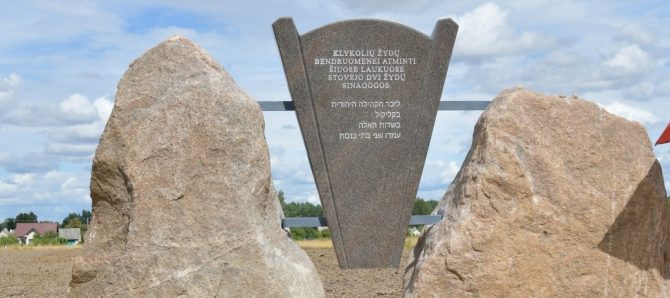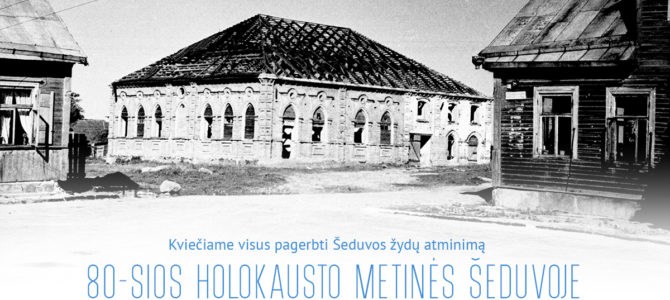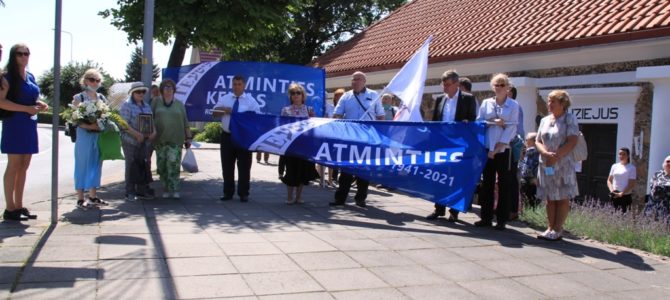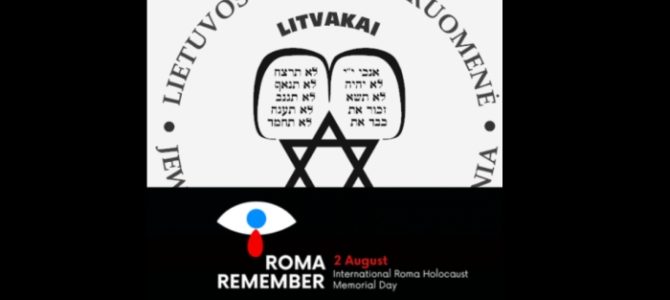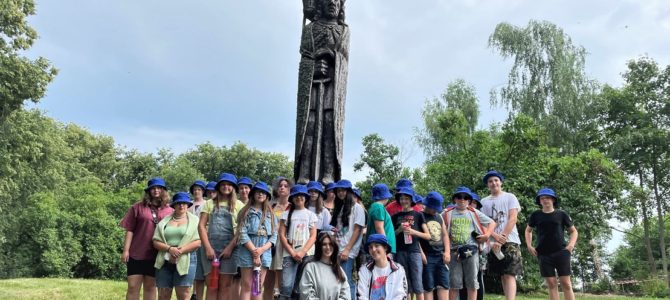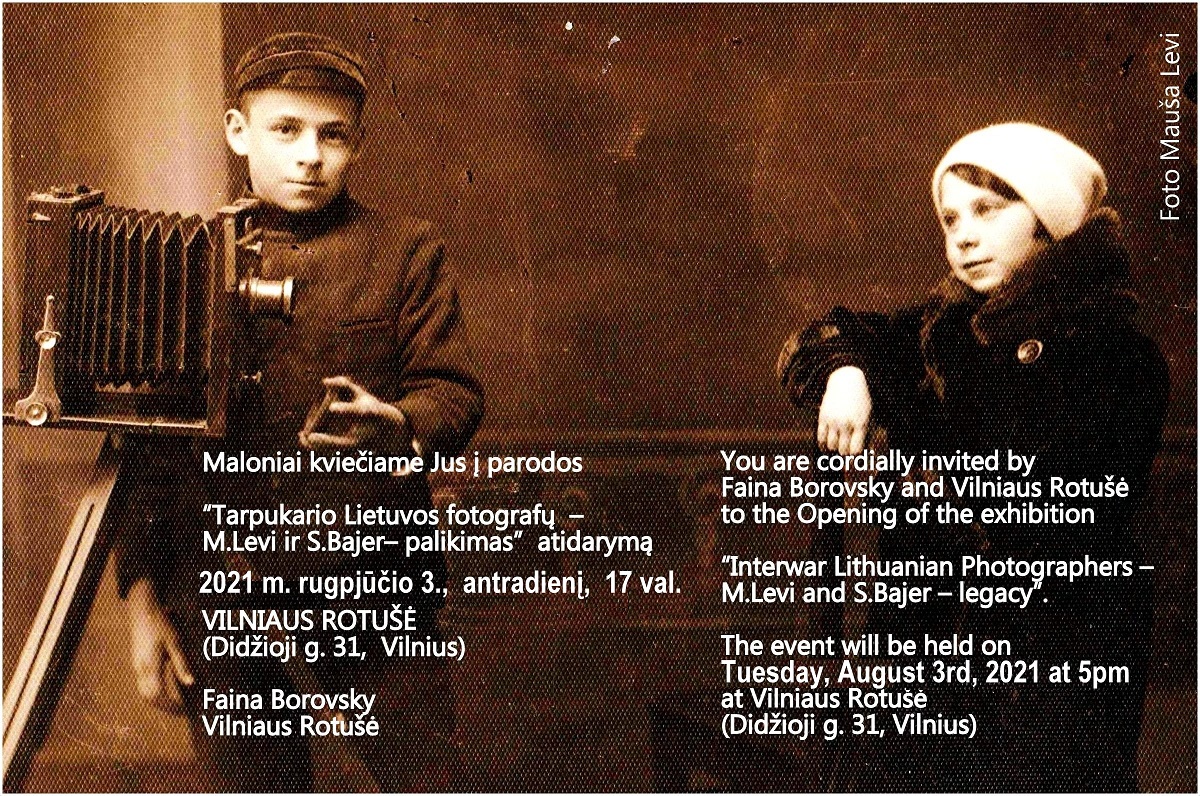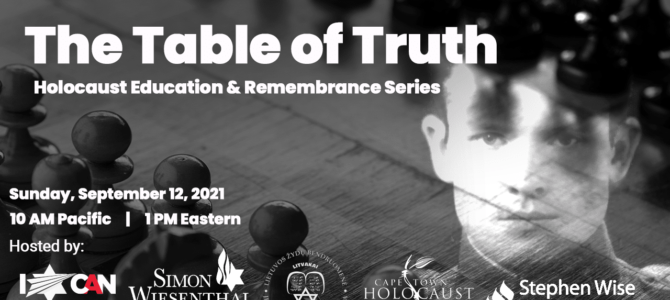The Lithuanian city of Molėtai, located about 60 miles north of the capital Vilnius, marked the 80th anniversary of the beginning of the Holocaust on August 29. On that date in 1941 more than half the population of Molėtai, the local Jewish community, was murdered.
Five years ago a large Jewish commemorative march was held in Molėtai, attracting international attention. Tzvi Kritzer, the organizer of that event, was made an honorary citizen of Molėtai by the local municipality.
This year’s event began with the unveiling of a monument at the site where the town’s four synagogues once stood. The monument is a commemorative plaque affixed to a large field stone in the town center with a silhouette of the former synagogues and inscriptions in several languages saying this is where the synagogues once stood. Saulius Pilinkus, an art historian who was directing this event, called upon Lithuanian Jewish Community chairwoman Faina Kukliansky, Molėtai regional administration mayor Saulius Jauneika, screenwriter and cartoonist Ilja Bereznickas and the creator of the plaque, Aurimas Širvys, to help in the unveiling.
Speaking at the unveiling ceremony, administration mayor Saulius Jauneika and Molėtai Regional History Museum director Viktorija Kazlienė both said Molėtai is striving to restore historical memory.
